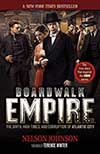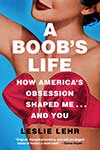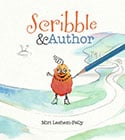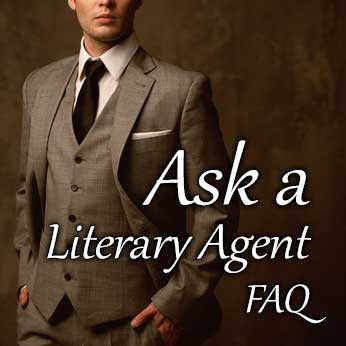When should you get a literary agent, and do you need a publishing agent ? This article is part of our free 15-Part Guide About How to Get a Book Agent. It answers questions many authors have about whether a book agent is necessary, and it will help you decide if you need a book agent or publisher.

When Should You Get a Literary Agent? – FAQ

When Should I Get a Literary Agent?
The best answer to the question, “When should you get a book agent?” depends on whether you mean, “Should I get a book agent?” because you’re not sure it’s necessary or worth it. Or if you mean, “When should I get a publishing agent?” in terms of the best time to pursue representation.
When should you get a literary agent? The best time for an author to try and get a publishing agent depends on the type of book the author is writing:
- Fiction Authors: Unless you’re a celebrity, your book must be complete you begin querying book agents. You’ll also need a synopsis and query letter.
- Nonfiction Authors: If your book is nonfiction, your manuscript doesn’t need to be complete. You will, however, need three sample chapters, chapter summaries, a book proposal, and a query letter. You’ll also be expected to share more information about how you plan to promote your book.
If you’re wondering if you need a literary agency at all, the rest of this article talks about whether book agents are necessary or worth it.
Literary Agent or Publisher?
Literary agent or publisher? What are the pros and cons of literary agents and publishers or working with a literary agent vs publisher? This advice is meant to help authors of all genres–fiction, nonfiction, and children’s books–decide if pitching literary agencies or publishers is best.
When should you get a literary agent vs a publisher? Though many people say choosing a book agent or publisher is easy–as though one way is right and one is wrong–it’s not that simple. Every author is different. Every book is different. The most important thing to know about the book agent vs publisher debate is you can’t get a major publisher without a publishing agent. This is explained in greater detail below.
If you don’t get a literary agency to represent you, the only publishers who will publish your book are small- to medium-size traditional publishers, vanity publishers, or self-publishing companies.
Self-publishing and vanity publishers aren’t desirable to most writers because choosing one of those options means you must pay part or all of the cost to publish. In addition, most authors who choose one of those options sell less than 250 books.
Working with a small- to medium-size traditional publisher that doesn’t charge fees is almost always better than working with a vanity press or self-publishing. However, getting a literary agency to represent you so you can work with a major publisher is almost always better.
In the following sections of this article about the literary agent vs publisher debate, you’ll see more information about whether book agents are worth it. But first, read and save the following information about publishers that don’t require book agents.
If you’re not able to get a literary agency to represent your book, the idea of submitting your manuscript to publishers that don’t require literary agency representation is a good option.
Do I Need a Literary Agent? – Are Book Agents Necessary?
Many authors ask, “Why do I need a literary agent?” Or, “Is a literary agent necessary?” Writers were once able to get book deals with major publishers without book agents. Now, with so many authors seeking publication, publishers rely on literary agents to send them what they believe are the best books.
When should you get a literary agent? If you want your book to be published by a major publisher–one that pays to publish your book instead of you paying to publish your book–getting a literary agent is necessary. Large and prestigious publishers such as Random House, Scholastic, and Thomas Nelson don’t accept unsolicited author submissions.
Book agents are the gatekeepers responsible for writers getting their books in front of big publishers. If you don’t get an author representative, you’re not only prohibited from getting a book deal with a major publisher. The chances of you reaching a large or global audience and having your work adapted for TV, stage, or feature film are also greatly reduced.
This applies to authors of all book genres.
Are Literary Agents Worth It? – Is It Worth Getting a Book Agent?
Are literary agents worth it? Consider these factors and tips to help you decide: printing and distribution, marketing and promotion, reach and impact, money, creative control, and speed.
- Printing and Distribution: Book agents pitch publishers that get thousands, tens of thousands, or more books distributed in bookstores. Smaller publishers often only print hundreds or they simply make books available via print on demand (not bookstores).
- Marketing and Promotion: Author representatives seek publishers with money to spend on publicity and promotion. Smaller publishers usually hope for–and only rely on–reviews and word of mouth.
- Reach and Impact: Since publishing agents find publishers that print and distribute more books–and they promote their books more–their authors entertain and/or empower more readers.
- Prestige: Writers with book agents and major publishers are more respected, as are their books, since everyone knows it’s often difficult to get a literary agent and publisher.
- Money: Authors with literary agents usually make more money, since they pitch publishers that print and distribute more books, and promote their books more.
- Creative Control: Large publishers make decisions about book titles, cover design, pricing, etc. They also provide editorial suggestions. Some authors don’t like that, but major publishers have experience in those areas.
- Speed: One advantage of smaller publishers is they usually publish books faster. It takes time to get a literary agency to represent a manuscript, and it takes time to sell a manuscript to a major publisher. If you don’t have time to wait–or don’t want to wait–go directly to publishers.
When should you get a literary agent, and is it worth getting a literary agent? Whether your answer is yes or no, read the following section about publishers that don’t require a book agent. They’re usually the best way to publish a book if you’re not able to get a book agent.
Publishers That Don’t Require a Literary Agent
Many publishers that don’t require a book agent (or payment) do as good a job as major publishers. Sometimes better. This is one of the most overlooked options for aspiring authors unable to get publishing agents. Here you’ll find a list of some of the most notable publishers that don’t require a book agent.
- Akashic Books
- Algonquin Books
- Catapult
- City Lights Publishers
- Coffee House Press
- Copper Canyon Press
- Counterpoint Press
- Dzanc Books
- Europa Editions
- Future Tense Books
- Graywolf Press
- Grove Atlantic
- Hawthorne Books
- Kensington
- Mango Publishing
- McSweeney’s
- Melville House
- Milkweed Editions
- New Directions
- Tin House Books
This article about book agents and publishers, book agent vs publisher, and when to get a book agent, was written by former literary agent turned author coach Mark Malatesta, creator of The Directory of Book Agents, host of Ask a Publishing Agent, and founder of Literary Agent Undercover and The Bestselling Author.
Mark has helped hundreds of authors get offers from literary agents and/or traditional publishers. Writers of all Book Genres have used our Book Agent Advice coaching/consulting to get Top Literary Agents at the Best Literary Agencies on our List of Literary Agents.
When Should You Get a Literary Agent? – Next Steps
Now that you know the answer to the question, “Do you need a literary agent?” and “When should you get a literary agent?” click here to:
- See the next part of this guide to getting a book agent about the Odds of Getting a Literary Agent.
- Visit our Ask a Book Agent page, where you’ll find a complete list of questions and answers about getting a publishing agent.












 MARK MALATESTA is a former literary agent turned author coach. Mark now helps authors of all genres (fiction, nonfiction, and children's books) get top literary agents, publishers, and book deals through his company
MARK MALATESTA is a former literary agent turned author coach. Mark now helps authors of all genres (fiction, nonfiction, and children's books) get top literary agents, publishers, and book deals through his company